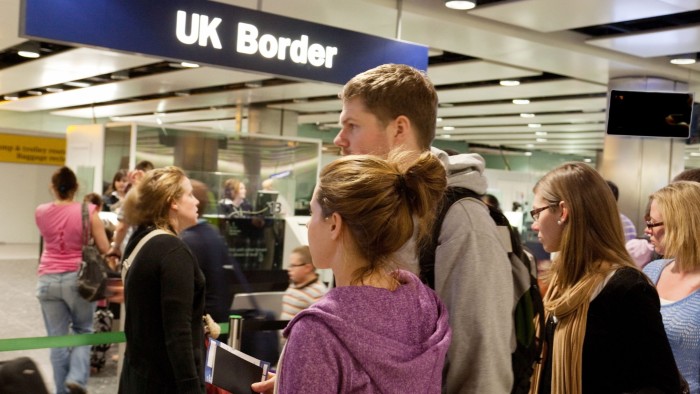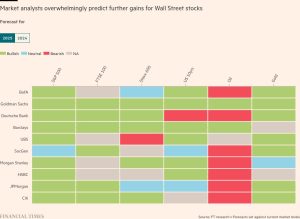Skilled migrants contribute more to public finances than working Britons, report finds

Unlock the Editor’s Digest for free
Roula Khalaf, Editor of the FT, selects her favourite stories in this weekly newsletter.
Migrants coming to Britain on skilled worker visas contribute almost 15 per cent more to public finances than the average UK-born working adult, according to analysis by the government’s independent migration advisers.
The average person arriving on a skilled worker visa in 2022-23 made a net contribution of about £16,300 to the UK finances in their first year, the Migration Advisory Committee’s annual report showed on Tuesday. This compared with about £14,400 generated by a working British adult.
The figures highlight the trade-offs of a tighter immigration policy pursued by the Labour government. It has retained visa measures introduced by the previous Conservative administration, at a time of tight public finances, as cutting back on skilled migrant labour is likely to reduce state revenue.
The Treasury also wants to keep doors open to skilled migrants to plug labour gaps, while home secretary Yvette Cooper is insisting that they should be mainly filled by British workers. Construction industry leaders warned this month they did not have enough workers to build the 1.5mn homes promised by the government.
The report comes amid a fierce debate about migration in the UK, with both Labour and the Tories taking a hardline approach as they try to neutralise a political threat from the populist right.
The MAC found that the average Briton — including those in full-time education, the employed, retired and economically inactive — contributed on average £800 to the public purse. The figure was about 20 times less than a migrant on a skilled worker visa, the most popular category used by people coming to Britain to work.

Brian Bell, professor of economics at King’s College London and MAC chair, said: “We always knew skilled workers were going to be positive in terms of their fiscal contribution, but our analysis shows that in their early years in the UK, they are really beneficial to the tax system”.
While the “massive positive contribution” that migrants on skilled worker visas made in their first few years would probably begin to diminish if they chose to grow old in Britain, Bell estimated they would always remain greater fiscal contributors than average British workers because they entered the UK on a higher-than-average salary.
The MAC estimated that a household of those coming to the UK through the skilled worker route contributed about £12,000 to the government’s coffers in their first year, compared with a net fiscal impact of minus-£4,400 from the average British household.
The net fiscal contribution of a household supported by a migrant on the skilled worker visa, but excluding health and care workers, was £26,800.
The MAC developed a new model to calculate the fiscal impact for the study, taking into account tax revenues and government expenditure on public goods, and drawing on feedback from the Office for Budget Responsibility, the fiscal watchdog.
Prime Minister Sir Keir Starmer has vowed to slash inward migration, largely by boosting domestic skills in key sectors that have historically been reliant on overseas labour.
The MAC noted that the stark difference between the contributions of British adults and those coming to the UK was partly down to immigration rules that only allow higher-earning adults to enter the country, who contribute more to government finances through taxation.
The report noted that 61 per cent of people arriving on skilled worker visas were aged between 30 and 49, the average age at which adults make their greatest fiscal impact. The majority of migrants on study or work visas are also not allowed to access government benefits or support.
The study was based on the 330,000 people who came to Britain on the skilled worker visa route in 2022-23 before it was tightened by the previous government.
The Conservatives increased the salary threshold to be eligible for a skilled worker visa and blocked social care workers from bringing dependants.
The MAC report also suggested there would be some limitations to Starmer’s ambition to cut net migration.
It noted that domestic workers were often reluctant to take available jobs because of pay and conditions and that, instead, employers might choose to hire the most suitable candidates irrespective of where they were from.
Bell said the government was “right” to focus on enhancing Britons’ skills but added that “we’ve got to be cautious about the idea it’s going to have an enormous effect on migration”, with evidence suggesting it would work much more effectively in some sectors than others.
The report also noted that the health and social care sectors remained a main driver of work visa numbers, accounting for 31 per cent of visas issued in the first three quarters of 2024, down from 57 per cent in 2023.
Skilled worker visas, excluding health and social care workers, now also account for 31 per cent of work visas issued.
#Skilled #migrants #contribute #public #finances #working #Britons #report #finds




